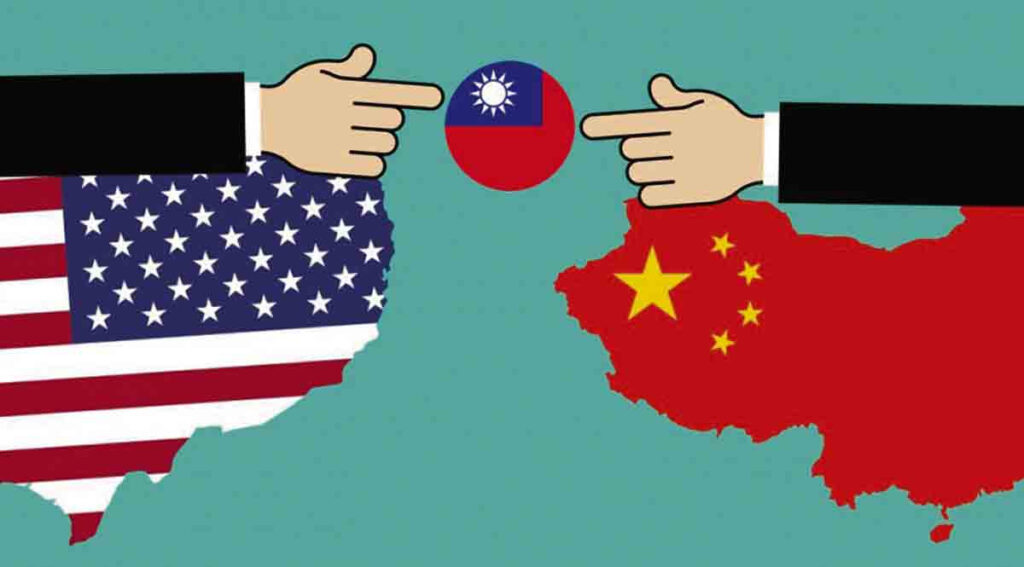China’s Increasing Irritation with Taiwan’s Push for Global Recognition Through Sports: A New Cross-Strait Flashpoint
China is increasingly becoming irritated with Taiwan over its use of sports and other platforms to gain international recognition. Taiwan’s recent push to showcase itself as an independent entity, particularly after its successes at the Paris 2024 Olympics, is viewed by Beijing as a direct challenge to its “One China” policy. This defiance, particularly under Taiwan’s Democratic Progressive Party (DPP), has heightened tensions across the Strait.
An editorial in the Taipei Times credited these successes to the DPP government’s efforts in developing the National Sports Training Center and investing in sports science. The article noted that to further build on these achievements, the government plans to establish a Ministry for Sports Development, as proposed by President William Lai, and recently announced by Premier Cho Jung-tai.
Chinese media have criticized these moves. State-run outlets such as Global Times have accused the DPP of politicizing sports, calling it a self-defeating strategy that would ultimately harm Taiwan’s athletes. Analysts claimed that the DPP was facing backlash for aggressively promoting “Taiwan values” and pushing to compete under the name “Taiwan” in international competitions, instead of the IOC-mandated “Chinese Taipei.”
According to experts cited in Global Times, the DPP’s drive to increase Taiwan’s global presence through sports is part of a broader strategy to internationalize the Taiwan issue. Their ultimate goal, they argue, is to leverage international sporting events to accelerate the “Taiwan independence” agenda while expanding Taiwan’s global footprint.
After Taiwan’s Olympic wins, the DPP capitalized on these achievements to advocate for a new sports authority, with a planned budget of 627 million US dollars. This effort, set to launch formally in 2025, further fuels China’s concerns over Taiwan’s ongoing attempts to promote independence through non-diplomatic means.
China’s Response: Reinforcing the “Olympic Model”
China has responded by reaffirming its commitment to the “Olympic model,” which requires Taiwan to compete under the name “Chinese Taipei.” On September 11, 2024, Chen Binhua, a spokesperson for the State Council’s Taiwan Affairs Office, stressed that this model is widely recognized in the international sports community and aligns with the interests of both mainland China and Taiwan. Chen accused the DPP of politicizing sports to further a separatist agenda, warning that such moves could destabilize the region.
This “Olympic model” is not just a sporting protocol but a reflection of China’s broader political stance. By adhering to the “One China” policy, Beijing aims to prevent Taiwan from gaining international recognition as a separate entity. Taiwan’s attempts to rebrand itself in international competitions directly challenge this policy, exacerbating cross-Strait tensions.
A Renewed Tussle Between China and Taiwan’s DPP
These developments have reignited the longstanding political conflict between Beijing and Taiwan’s DPP. Since the DPP came to power, tensions have escalated, with China attempting to undermine the party by supporting pro-unification candidates in Taiwan’s elections. Despite Beijing’s efforts, the DPP has managed to retain power, frustrating China’s leadership.
The re-election of the DPP under President Tsai Ing-wen has brought cross-Strait tensions back into focus. Having failed to defeat the DPP politically, Beijing is increasingly focused on curbing its international efforts, particularly through symbolic moves like competing under the name “Taiwan.”
Taiwan’s Strategy: Sports as a Tool for Global Visibility
As China continues to restrict Taiwan’s participation in global organizations, the DPP has turned to sports as a way to raise Taiwan’s international profile. Before the Paris Olympics, Taiwan’s leader Lai Ching-te urged citizens to “push Taiwan onto the world stage,” encouraging discussions about athletes competing under the name “Taiwan.”
While Taiwan has hosted some international sports events, critics note that these competitions often attract limited participation. However, the DPP sees even minimal foreign involvement as an opportunity to project Taiwan as an independent entity. This strategy, though criticized for exaggerating Taiwan’s significance, continues to be a cornerstone of the DPP’s international approach.
China’s Likely Next Steps
Experts predict that China may respond more aggressively to Taiwan’s actions. Beijing, already expressing strong disapproval of Taiwan competing under its own name, could intensify pressure on the island. In the past, China has used military maneuvers, such as incursions into Taiwan’s airspace and increased naval presence, to assert dominance and deter separatist moves. Similar actions could be ramped up in the coming months as China seeks to punish Taiwan for challenging its authority.
Frustrated by its inability to politically unseat the DPP, China may rely on military displays to reassert its position, experts said. The People’s Liberation Army (PLA) has previously conducted military exercises near Taiwan following political disputes, and analysts believe similar tactics could be used to send a strong message to Taiwan’s leadership. As tensions mount, cross-Strait relations are likely to deteriorate further, posing risks not only for Taiwan but also for regional stability.













